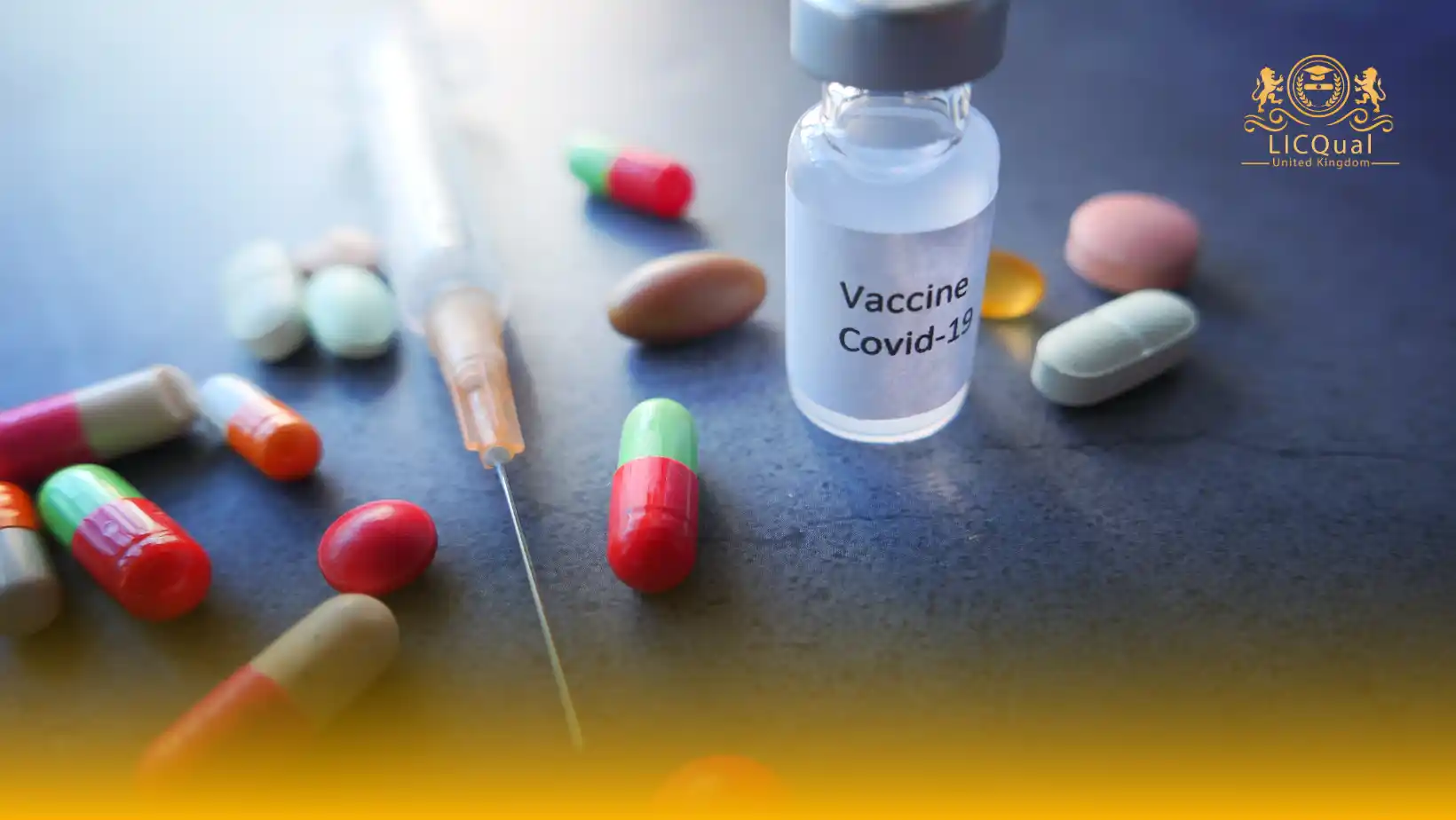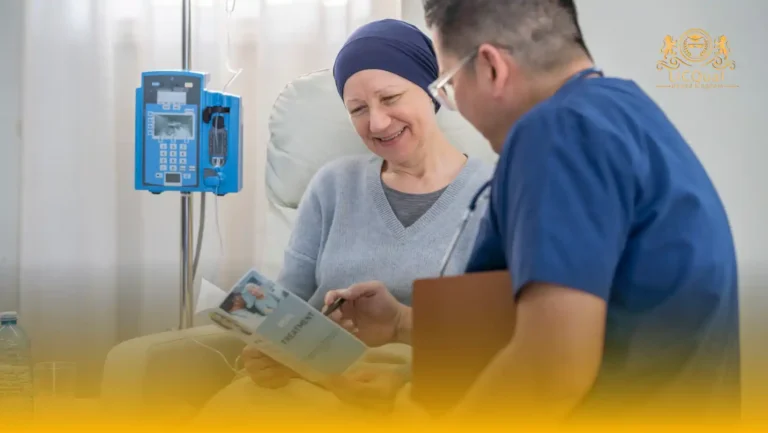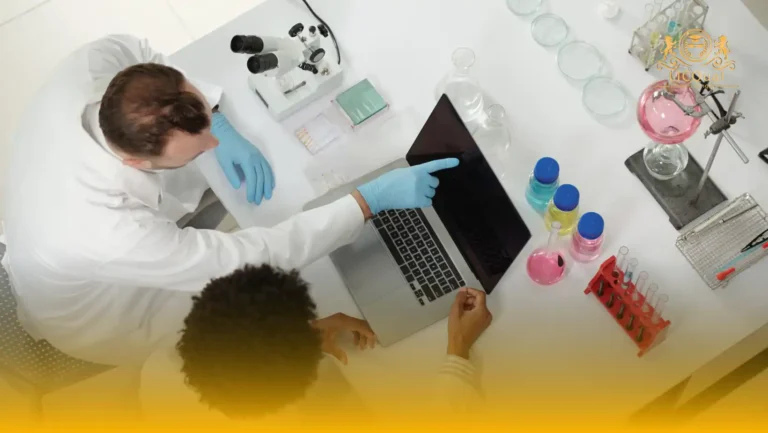The LICQual Level 3 Certificate in Advanced Drug Delivery Systems (Cert Drug Delivery Systems) is a specialised qualification designed for learners who wish to gain in-depth knowledge and practical expertise in the development, formulation, and administration of advanced drug delivery technologies. This course equips learners with the skills to evaluate novel delivery methods, understand pharmacokinetics and pharmacodynamics, and apply safe, effective, and innovative drug delivery solutions in professional healthcare and pharmaceutical settings.
This qualification is aimed at professionals who wish to enhance their career prospects, expand their knowledge, and strengthen their Continuing Professional Development (CPD). Learners will explore key topics including controlled-release systems, targeted delivery mechanisms, nanotechnology applications, formulation strategies, regulatory requirements, and the clinical evaluation of drug delivery systems. By combining theoretical understanding with practical applications, the course ensures learners are prepared to contribute effectively to pharmaceutical research, clinical practice, and product development.
Centres delivering this qualification must ensure that competent and qualified staff, along with access to current learning materials, laboratory facilities, and digital resources, are available to provide a high-quality learning experience. Structured guidance, access to research tools, and hands-on support enable learners to achieve their learning outcomes successfully and confidently.
Completing the LICQual Level 3 Certificate in Advanced Drug Delivery Systems provides learners with a recognised qualification that enhances professional competence, supports evidence-based practice, and opens pathways for career progression in pharmaceutical development, clinical research, drug formulation, and healthcare practice. This course is ideal for learners committed to advancing their expertise and applying innovative drug delivery solutions in professional settings.
Course Overview
Qualification Title
LICQual Level 3 Certificate in Advanced Drug Delivery Systems (Cert Drug Delivery Systems)
Total Units
6
Total Credits
24
GLH
120
Qualification #
LICQ2201150
Qualification Specification
To enroll in the LICQual Level 3 Certificate in Advanced Drug Delivery Systems (Cert Drug Delivery Systems) applicants must meet the following criteria:
|
Qualification# |
Unit Title |
Credits |
GLH |
|---|---|---|---|
|
LICQ2201150-1 |
Introduction to Advanced Drug Delivery Systems |
4 |
20 |
|
LICQ2201150-2 |
Controlled and Targeted Drug Delivery Mechanisms |
4 |
20 |
|
LICQ2201150-3 |
Nanotechnology Applications in Drug Delivery |
4 |
20 |
|
LICQ2201150-4 |
Formulation Strategies and Pharmaceutical Technology |
4 |
20 |
|
LICQ2201150-5 |
Regulatory, Safety, and Quality Considerations |
4 |
20 |
|
LICQ2201150-6 |
Emerging Trends and Continuing Professional Development in Drug Delivery |
4 |
20 |
By the end of this course, learners will be able to:
Unit 1: Introduction to Advanced Drug Delivery Systems
Learners will be able to:
- Understand the principles and significance of advanced drug delivery systems in modern healthcare.
- Identify the different types of drug delivery technologies and their clinical applications.
- Analyse the role of drug delivery systems in improving therapeutic efficacy and patient compliance.
- Demonstrate awareness of ethical and professional considerations in drug delivery practice.
Unit 2: Controlled and Targeted Drug Delivery Mechanisms
Learners will be able to:
- Explain the mechanisms of controlled-release and targeted drug delivery systems.
- Evaluate the advantages and limitations of various controlled and targeted delivery technologies.
- Apply knowledge to select suitable delivery mechanisms for specific therapeutic applications.
- Assess case studies to understand practical implementation and patient outcomes.
Unit 3: Nanotechnology Applications in Drug Delivery
Learners will be able to:
- Understand the principles of nanotechnology and its role in advanced drug delivery.
- Identify different types of nanoparticles and nanocarriers used in pharmaceutical applications.
- Evaluate the safety, efficacy, and regulatory considerations of nanotechnology-based drug delivery.
- Analyse current research and emerging innovations in nanomedicine and drug targeting.
Unit 4: Formulation Strategies and Pharmaceutical Technology
Learners will be able to:
- Apply formulation principles to develop effective drug delivery systems.
- Understand the impact of excipients, carriers, and delivery platforms on drug stability and release.
- Demonstrate knowledge of pharmaceutical technology used in the production of advanced delivery systems.
- Critically assess formulation strategies to optimise therapeutic outcomes.
Unit 5: Regulatory, Safety, and Quality Considerations
Learners will be able to:
- Identify regulatory requirements for advanced drug delivery products.
- Apply safety and quality control measures to ensure compliance and patient safety.
- Evaluate ethical, legal, and professional considerations in drug delivery research and practice.
- Develop strategies to monitor and maintain product quality throughout development and distribution.
Unit 6: Emerging Trends and Continuing Professional Development in Drug Delivery
Learners will be able to:
- Identify current trends, innovations, and challenges in drug delivery systems.
- Understand the role of digital tools, artificial intelligence, and technology in modern drug delivery research.
- Develop strategies for Continuing Professional Development (CPD) to enhance professional competence.
- Demonstrate reflective practice to support ongoing growth and the application of evidence-based delivery solutions.
The LICQual Level 3 Certificate in Advanced Drug Delivery Systems is designed for learners who wish to develop specialist knowledge, practical skills, and professional competence in pharmaceutical drug delivery technologies. This course is ideal for:
- Pharmacy professionals seeking to enhance their understanding of advanced drug delivery systems and improve patient care outcomes.
- Healthcare practitioners and clinicians interested in the application of controlled-release and targeted drug therapies.
- Pharmaceutical scientists and formulation specialists aiming to develop expertise in formulation strategies and nanotechnology applications.
- Learners committed to Continuing Professional Development (CPD) and seeking a recognised qualification to support career advancement.
- Graduates or professionals in pharmacy, pharmaceutical sciences, or life sciences looking to specialise in drug delivery technologies.
- Researchers and laboratory scientists who wish to engage in innovative drug delivery research and clinical trials.
- Individuals aspiring to roles in pharmaceutical development, clinical research, or healthcare consultancy focusing on advanced therapeutic delivery solutions.
This qualification equips learners with the knowledge, practical skills, and professional competence to confidently apply innovative drug delivery systems in pharmaceutical research, clinical practice, and product development, ensuring safe, effective, and evidence-based practice.
Centres delivering the LICQual Level 3 Certificate in Advanced Drug Delivery Systems (Cert Drug Delivery Systems) must meet high standards to ensure learners receive quality training, effective support, and compliance with international best practices. Key requirements include:
- Qualified and Experienced Staff: Trainers and assessors must hold relevant qualifications and professional experience in pharmacy, pharmaceutical sciences, drug formulation, or healthcare.
- Comprehensive Learning Resources: Centres must provide access to up-to-date textbooks, research journals, case studies, and digital resources relevant to advanced drug delivery systems.
- Facilities and Equipment: Centres should ensure classrooms, laboratories (if practical work is included), IT infrastructure, and online learning platforms are adequately equipped to support effective learning delivery.
- Assessment and Quality Assurance: Centres must implement robust assessment procedures, internal verification, and quality assurance systems to maintain high academic and professional standards.
- Learner Support Services: Academic guidance, mentoring, and career development support must be available to help learners achieve successful outcomes.
- Access to Technology: Learners must have access to computers, reliable internet connectivity, and software tools required for research, assignments, and practical projects.
- Compliance with Standards: Centres must adhere to LICQual policies, ensuring ethical training practices, learner safety, and regulatory compliance.
Meeting these requirements enables centres to deliver a high-quality learning experience, ensuring learners gain the knowledge, practical skills, and professional competence required to excel in pharmaceutical development, clinical research, and advanced drug delivery practice.
Assessment and Verification
All units within this qualification are subject to internal assessment by the approved centre and external verification by LICQual. The qualification follows a criterion-referenced assessment approach, ensuring that learners meet all specified learning outcomes.
To achieve a ‘Pass’ in any unit, learners must provide valid, sufficient, and authentic evidence demonstrating their attainment of all learning outcomes and compliance with the prescribed assessment criteria. The Assessor is responsible for evaluating the evidence and determining whether the learner has successfully met the required standards.
Assessors must maintain a clear and comprehensive audit trail, documenting the basis for their assessment decisions to ensure transparency, consistency, and compliance with quality assurance requirements.







